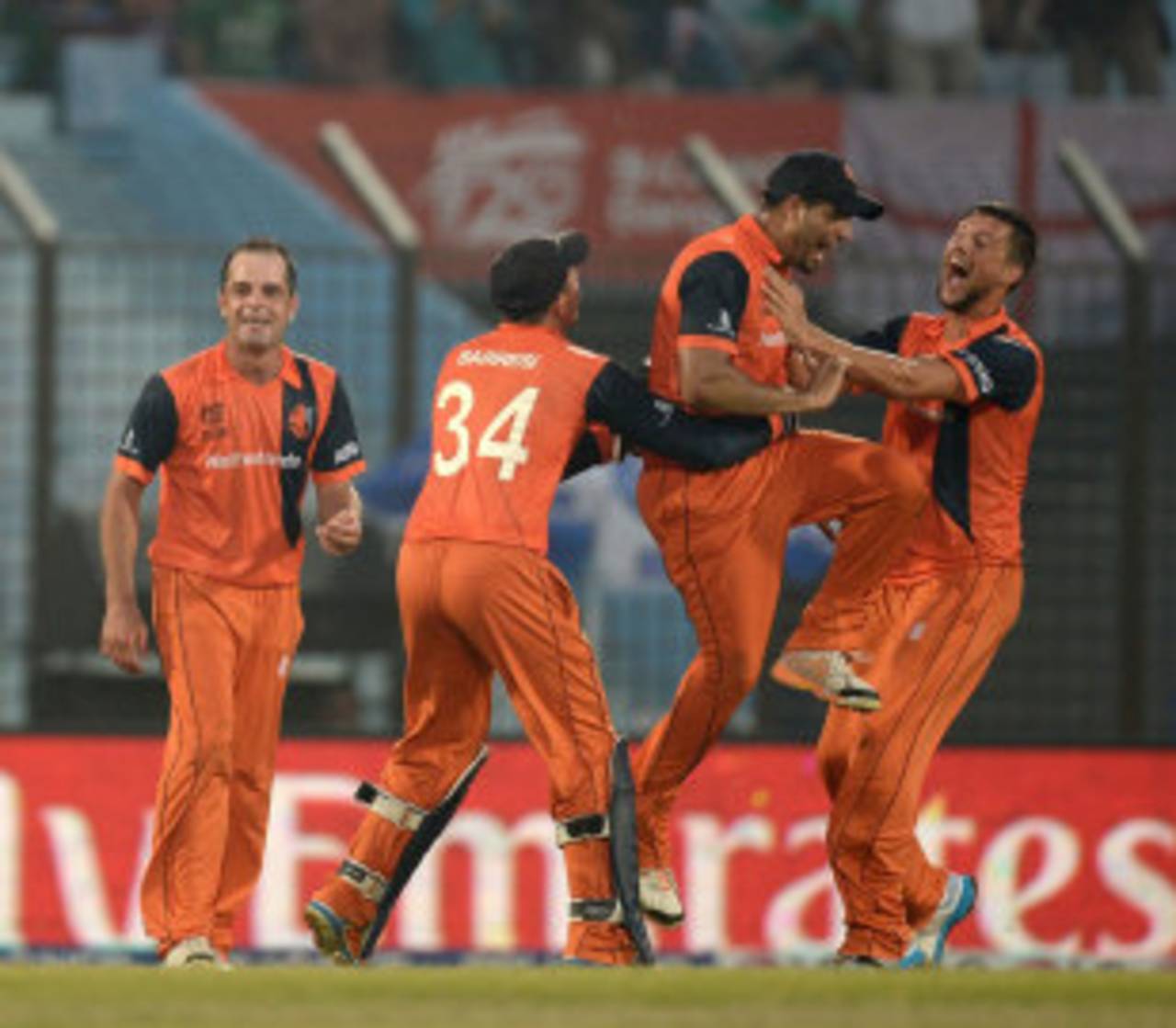Nepal, Netherlands get T20 international status
Netherlands and Nepal have been granted Twenty20 international status by the ICC board at the annual conference in Melbourne
ESPNcricinfo staff
28-Jun-2014

Netherlands lost their ODI status last year but have been granted T20 international status • Getty Images
Netherlands and Nepal, who took part in the 2014 World T20, have been granted Twenty20 international status by the ICC board at the annual conference in Melbourne. The other Associates that have T20I status by virtue of having ODI status are Afghanistan, Hong Kong, Ireland, Scotland, Papua New Guinea and UAE.
The ICC board also confirmed the USA Cricket Association (USACA), and not its rival body the American Cricket Federation, as its recognised member in the USA. Oman Cricket was made the 38th Associate Member of the ICC, while Brunei was suspended as an Affiliate and Tonga was removed as an Affiliate Member for not complying with ICC norms.
The changes to international playing conditions that were passed by the ICC's Cricket Committee and approved by the Chief Executives Committee will come into effect from October 1 this year.
In Test cricket, a bowler who has spent time off the field will be allowed to resume bowling after he has either spent the same period of time on the field or he has been back on the field for 30 overs, whichever occurs first. The trial of allowing an 80-over top-up of DRS reviews will be extended for another 12 months. In Twenty20 internationals, teams will now have 85 minutes to complete an innings, instead of 80. The ICC board endorsed the recommendation that international venues must be set up to their maximum possible boundary dimensions to help maintain balance between bat and the ball.
The board also passed the CEC recommendation that members must sign all bilateral agreements through to 2023 before the next ICC meeting in October. The ICC board "expressed satisfaction that there was now more certainty around long-term scheduling with a reasonable balance between home and away matches for all ten teams as well as between the three formats."